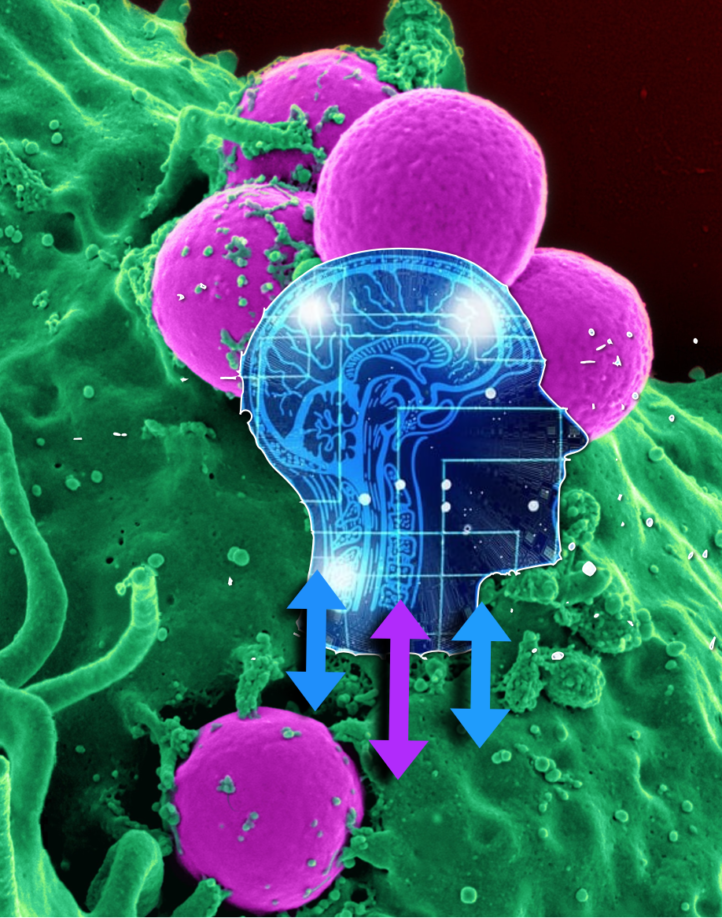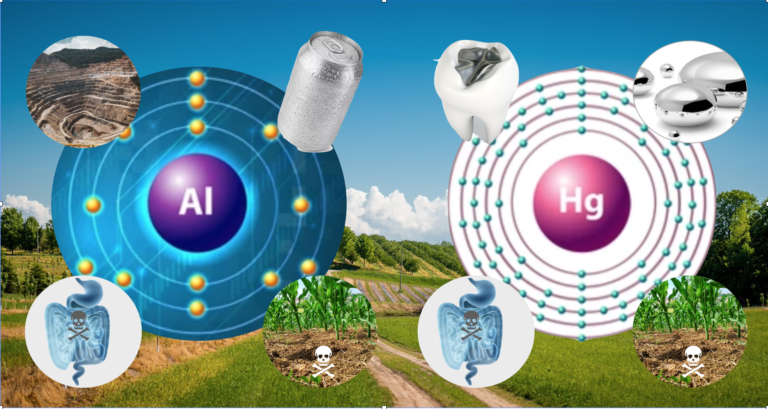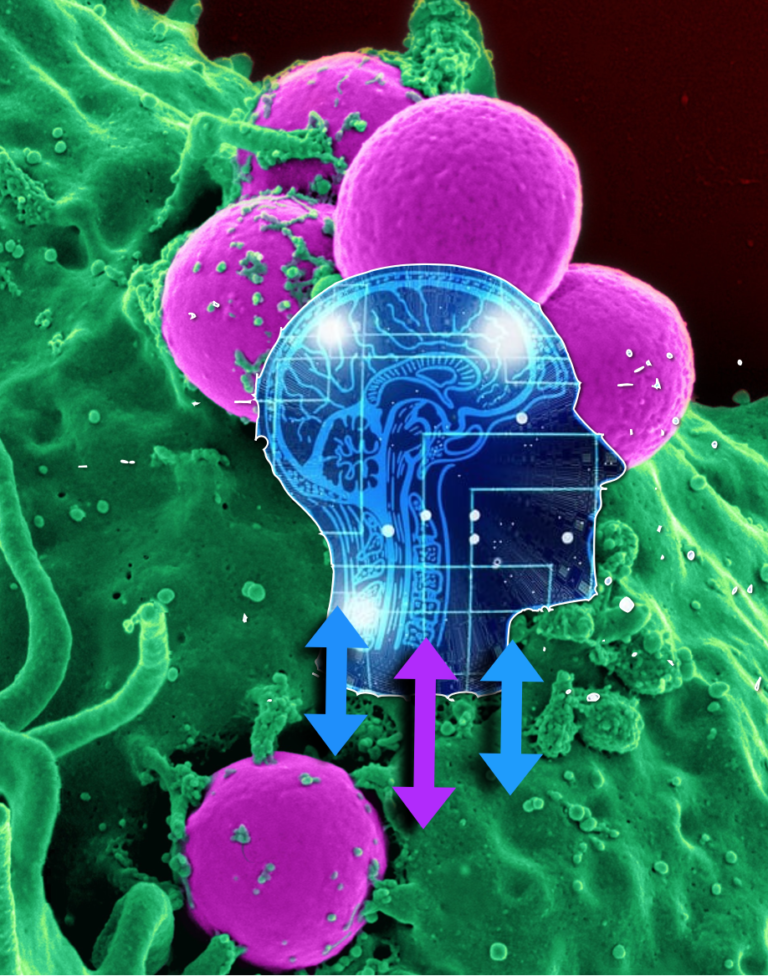BRAIN MATTERS

The community of micro-organisms in the gut (microbiota) is the gift that keeps on giving. Recent studies explore different pathways that link gut microorganisms (bacteria, archaea, fungi) to the brain during their bidirectional communication (microbiota-gut-brain axis). These studies even explore the possibility that some neurological disorders are associated with a disrupted gut microbiota [1]. Such disruption, at an early age, can affect the brain development of an infant [2]. The blood-brain barrier acts as a guard to keep harmful substances from entering the brain and also maintains equilibrium between external-internal substances in brain environments. In mice studies, a disrupted microbiota, allowed harmful substances to traverse the brain barrier while a normal microbiota reinforced this barrier in the presence of harmful substances [3].
It is for example commonly known that gardening* produces positive mental effect in some people. Bacillus subtilis is a beneficial member of the gut microbiota, commonly found in nature, on the soil, roots of plants and in aquatic environments. Dopamine, an important brain neurotransmitter, as well as norepinephrine, with neuro-protective effects, have been found in the biomass of Bacillus subtilis [4, 5]. This finding could be indicative of B.Subtilis’ active role in the production of these neurotransmitters.
The influence of the gut microbiota on distant organs, such as the brain, has been attributed to the production and modification of metabolic, immunological and neurochemical factors [2]. For instance, Short Chain Fatty Acids (SCFA), are produced by bacterial fermentation of dietary fibers. Acetate, Butyrate and Propionate are SCFAs. There are many microorganisms participating in the production of each SCFA. Some microorganisms produce one metabolite such as acetate and another microorganism uses it for production of Butyrate and so on. Furthermore, microorganisms of the same family or genus may contribute to different processes. Researchers have demonstrated SCFAs’ role in neuronal inflammation and blood-brain barrier integrity [8].
Therefore, gut microorganisms form intricate interconnections among themselves. One community of microorganisms produces the metabolites necessary for another community to thrive. Preserving the gut microbiota is easier than replacing it.
Food for the brain, then, is not only food that is needed for proper functioning of the brain, but also food that supports beneficial gut microorganisms. These microorganisms in turn, are able to produce the short chain fatty acids, tryptophan metabolites and microbial neurotransmitters, in proper proportions, to contribute to brain health. The right food without beneficial microorganisms to act upon it, will not suffice. The indiscriminate use of antibiotics or alcohol can get in the way of a brain-gut beneficial relationship.
Food for the brain:**
Protein: Fatty fish ( Organic, non GMO, not contained salmon, cod, herring, mackerel). Grass fed animal protein, eggs. See Eggtelligence. Eat enough protein, about 3 servings/day. Beans, Peas and other sources of vegetarian protein need to be supplemented with Vitamin B-12. Note that the brain contains 25% of total body’s cholesterol. For brain nutrition, healthy fats should exceed carbohydrates. People with Alzheimer’s disease have a deficiency of fats and cholesterol in their cerebrospinal fluid [7].
Fermented products such as Kimchi, Sucuk, Hungarian salami, Sauerkraut. High branched carbohydrates: Organic squash, organic potatoes, seasonal organic fruit varieties of low sweetness and high antioxidant value such as berries, organic legumes and other organic vegetables. Maximize nutrients by growing in your garden at least one nutritious vegetable, such as kale. Avoid juices ( without pulp) and dry fruit. Have most of your veggies and fruits raw or lightly steamed. A diet high in fructose and glucose and low in fats eventually leads to insulin resistance and subsequently to glycation processes. Glycation happens when serum proteins are exposed to a high level of circulating sugars, forming advanced glycation end-products (AGEs). These end products interfere with the brain cells uptake of lipids and may also make difficult the synthesis of cholesterol [7]. Consequently, all these events will lead to cell starvation, oxidation and destruction. Nuts and seeds: almonds, cashews, brazil nuts, pumpkin, sesame and flax seeds. Avoid sugar, processed oils and limit/avoid alcohol.
See NATURAL INFLAMMATION FIGHTERS
*Consider practicing Permaculture principles, instead of traditional gardening. In this way, local flora and pollinators are protected. See section on Permaculture.
**Never change your diet based on information from the Internet without further research.References:
[1] Morais LH, Schreiber HL 4th, Mazmanian SK. The gut microbiota-brain axis in behaviour and brain disorders. Nat Rev Microbiol. 2021.
[2] Sittipo P, Choi J, Lee S, Lee YK. The function of gut microbiota in immune-related neurological disorders: a review. J Neuroinflammation. 2022. [3] Wang S, et al. Targeting the gut microbiota to influence brain development and function in early life. Neurosci Biobehav Rev. 2018. [4] Braniste V, et al. The gut microbiota influences blood-brain barrier permeability in mice. Sci Transl Med. 2014. [5] Roshchina VV. New trends and perspectives in the evolution of neurotransmitters in microbial, plant, and animal cells. Adv Exp Med Biol. 2016. [6] Tsavkelova EA, et al. Detection of neurotransmitter amines in microorganisms with the use of high-performance liquid chromatography. Dokl Biochem. 2000. [7] Seneff S, Wainwright G, Mascitelli L. Nutrition and Alzheimer’s disease: the detrimental role of a high carbohydrate diet. Eur J Intern Med. 2011.[8] Hoyles L, et al. Microbiome-host systems interactions: protective effects of propionate upon the blood-brain barrier. Microbiome. 2018.
© Edenbumi/Brain Matters 2023





1 thought on “BRAIN MATTERS”
Comments are closed.